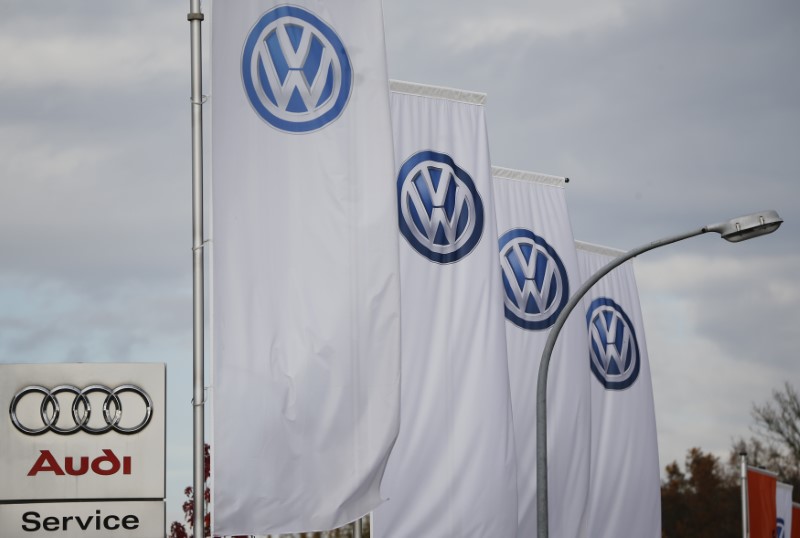BRUSSELS/BERLIN (Reuters) - Audi's top-selling model released excessive toxic diesel emissions in results from lab tests run by the European Commission and seen by Reuters, raising suspicions of wrongdoing at Volkswagen's (DE:VOWG_p) luxury division.
The results threaten to embroil Audi, the main contributor to VW group profit, in the scandal that has engulfed the company since it admitted cheating U.S. emissions tests with software to mask nitrogen oxides (NOx).
The lab tests run by the European Commission's Joint Research Centre (JRC) in August showed the latest Euro 6 diesel generation A3 emitted 163 milligrams (mg) of nitrogen oxides (NOx) per kilometer, double the statutory 80mg cap.
A separate lab-based test showed the A3 emitting 140mg of NOx at an engine temperature of 10 degrees Celsius, but emissions were below 80mg when the car was run with a cold engine.
"The differences between cold start and hot start are hard to explain," said Bas Eikhout, a lawmaker on the European Parliament's inquiry committee into the VW scandal.
Audi said that emissions of the A3 compact, which has topped the brand's global sales rankings this year ahead of the A4 and A6 models, comply with legal limits, citing "independent measurements" of a 2-litre TDI EU6 model.
The Ingolstadt-based carmaker said it has no information about the JRC tests, including the engine type examined by the EU Commission's experts, and declined further comment.
EU regulators depend on the JRC's work to help to shape policy, but member states are responsible for policing their car industries.
A Commission spokeswoman said that the JRC's results were still preliminary.
"If the test results raise some suspicion of wrongdoing, such as the installation of prohibited defeat devices, they will be shared with all relevant approval authorities," she said.
Germany's KBA motor vehicle authority declined to comment.
Amid frustration in Brussel over inaction by governments over the dieselgate scandal, the EU began legal action this month against seven countries, including Germany, for not fining VW over its use of illegal software.
VW has set aside 18.2 billion euros ($19.4 billion) to cover the costs of the biggest corporate scandal in its history.
In Europe, however, VW has not admitted to using illegal software. Carmarkers in the bloc say that an exemption in EU law allows them to turn off emissions-control systems if that is needed to protect engines.
Signs of further emissions irregularities come at a bad time for VW as it tries to negotiate a deal with U.S. authorities on possible buybacks and fixes for about 80,000 polluting Audi, Porsche and VW 3-litre vehicles.

Audi also came under scrutiny last month over whether some gasoline vehicles have separate software that lowered carbon dioxide emissions.